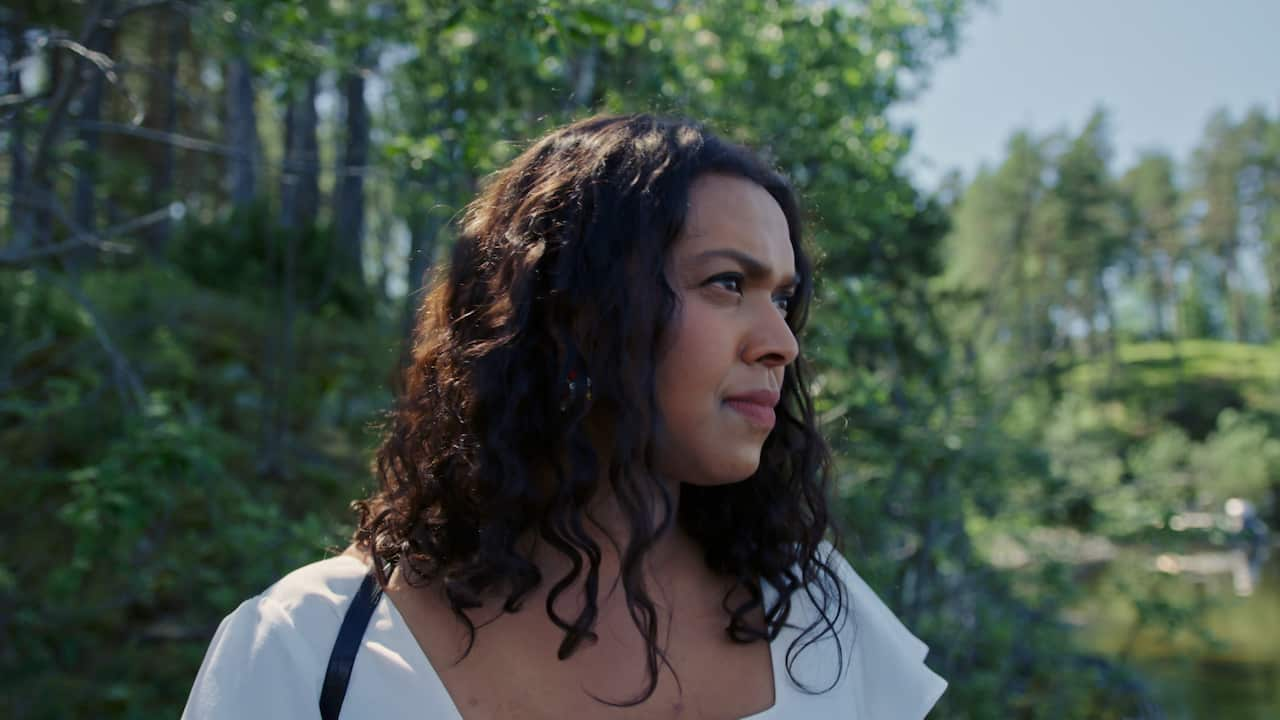On July 22, 2011, Anders Behring Breivik carried out a killing spree on Utøya Island, some 40 kilometres from the Norwegian capital, Oslo.
Disguised as a police officer, he arrived heavily armed on Utøya’s beach, where hundreds of teenagers were attending a summer camp hosted by the AUF, the Norwegian Labour Party’s youth wing.
He then moved methodically around the island, shooting at those in attendance.
His actions killed 69 people, most of them teenagers. He had earlier detonated a bomb in Oslo that killed eight people.
'I heard gunshots' - Ina Libak’s story
Ina Libak was helping out in the camp’s kitchen when the chaos began.
“I stood there doing the dishes and then I heard gunshots,” she recalls.
“I went into the small auditorium [and] hid behind the piano because we thought he was outside. But the terrorist was actually inside the room. ”
She was shot at least four times, through her hands, jaw and chest but managed to run into the nearby woods to hide.
Despite urging her friends to ‘run and save themselves’, they stayed by her side, nursing her various wounds.

Utøya survivor Ina Libak.
“I thought they would die if they stayed with me as I was severely injured and couldn’t run.
“But I was very relieved when they stayed, so I wouldn’t die alone in the woods and at least we could be together.”
Following her recovery, Ina became the leader of the AUF, an organisation with more than 14,000 members.
“Having someone try to kill me because of my beliefs did affect me,” Ina says.
With the massacre still fresh in the minds of many who were there, Ina says the responsibility of the role can be “overwhelming” at times.
“I often feel that my performance is not good enough because I spend too much time being afraid of the things around me,” she says.
“That someone will attack us again and shoot us for what we believe in.”
Having someone try to kill me because of my beliefs did affect me.Ina Libak
During her time as the leader of the AUF, she says her experience was marred by death threats and anti-immigrant rhetoric, but she still believes in the potential for her platform to promote peace.
“Words can divide us. Words can make us hate. Words can lead to violence. But words can also comfort us. Words can convey love.”
Shooter Anders Breivik is serving a 21-year jail sentence for the attack, the maximum under Norwegian law. He said his motivation for the attack was to save Norway from immigrants and a Muslim takeover, a position that Ina continues to fight against.
Ina is now a politician with the Norwegian Labour Party, ‘Arbeiderpartiet’
“We will speak out against intolerance and xenophobia every single day. We will speak out on behalf of all those who can no longer talk.”
'We want to make a difference' - Kamzy Gunaratnam's story
Walking along the cliffs of Utøya Island, Kamzy Gunaratnam points to where she sought safety as the shots were fired.
“In that crevice is where I hid. I sat here with a bunch of kids.”
Warned not to swim in the freezing waters, Kamzy says she “felt like drowning would be easier, or less painful” than being shot.
She swam 500 metres across a lake to safety, as bullets hit the water around her.

Kamzy Gunaratnam on Utøya Island.
Sri Lankan-born Kamzy served as Oslo’s deputy mayor from 2015 to 2021, and a decade on from the massacre, is now a politician for the Norwegian Labour Party.
“I believe that I have been so quiet for such a long time, and belonged to the Tamil culture where you're expected to hold speeches and excel academically,” Kamzy says.
“Then I discovered the AUF and the Labour Party at the age of 19, which introduced me to a whole new world.”
In that crevice is where I hid. I sat here with a bunch of kidsKamzy Gunaratnam
Like many ‘generation Utøya’ youth, Kamzy has made it her mission to confront racism and dismantle the far-right ideology which inspired Breivik’s acts of terror.
She travels the country, speaking about her experience and promoting peace, tolerance and democracy.
Combating claims of “being Islamicised and that someone is ‘taking us over’” is a common hurdle for the MP, but she says she hopes to restore Norway to a place that makes these ideologies outdated and unwelcome.
“We're in politics because we want to make a difference,” she says.
'I felt like a mother to everyone' - Line Hoem's story
For fellow survivor Line Hoem, the memories are still extremely raw and difficult to revisit.
“We stayed hidden under that rock for a long time, and then the shooting got much closer,” she says.
“We thought it best to get moving. At first, we started swimming away from the beach. But the shooting was very close … so we swam back in.
“I remember just laying down on the ground. And sort of gave up.”

A young Line Hoem, volunteering for the AUF. Credit: Jennifer Scherer
“I find [it] difficult to relive,” she says.
“I work[ed] for the AUF... and I signed up everyone.
“I felt kind of like a mother to everyone.”

Utøya survivor Line Hoem.
“There were so many amazing people who lost their lives on that day, who were also politically active, which makes it crucial to carry on with it,” she says.










